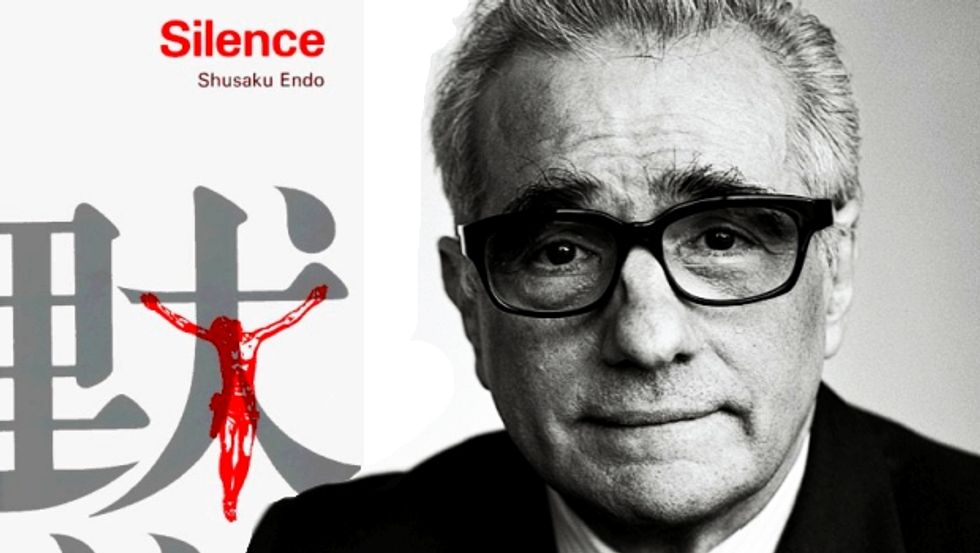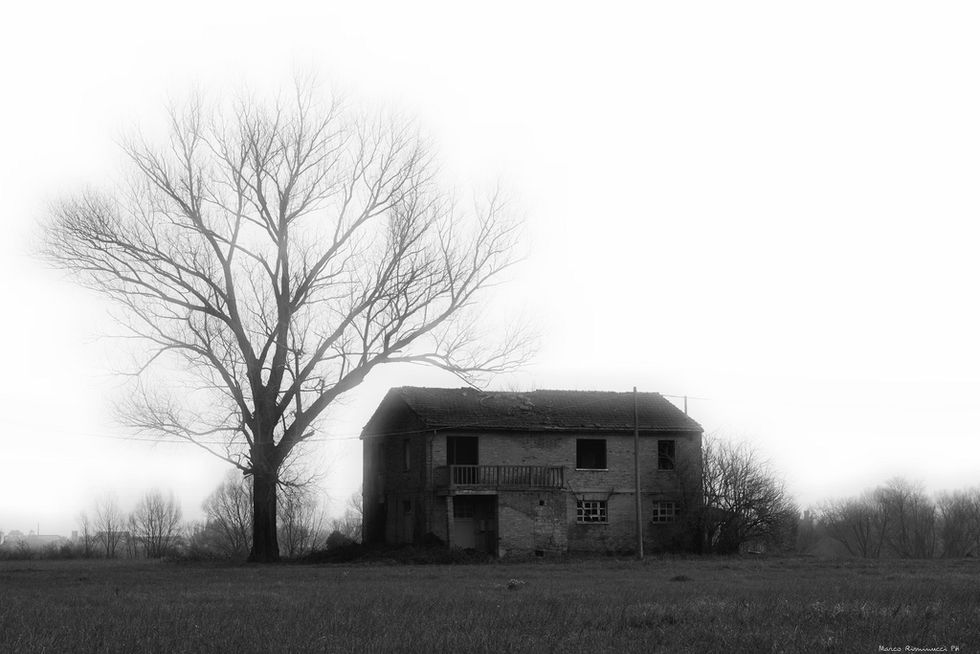Silence: Scorsese’s Film and Modern Christian Reformation
(Warning! Spoilers Ahead!)
If you haven’t heard, Bill Conlon, director of “Gods and Monsters,” is directing a new film called “Beauty and the Beast.” His new film follows along in the line of Disney animated films being remade into live-action. A knowledgeable observer could look at Disney’s increasingly more liberal agenda, look at Conlon’s past films, and deduce that his romance film would include a homosexual subtext. After all, “Gods and Monsters” follows James Whale, director of the magnificent 1930’s adaptation of “Frankenstein.” As the film shows, Whale was also a well-known homosexual.
Conservative Evangelical response has been what a casual observer might expect. Throughout conservative Christendom, there have been calls for boycotts, as angry parents raise their fists in anger. Unlike Achilles, theirs is a rage that muses do not sing, and the liberal-minded media looks at the boycotters and scoffs. The fact that Christians are boycotting the film and that Russia is possibly banning it raise even more awareness for a movie that will likely challenge for the billion-dollar mark.
Now, you might be asking yourself if I’ve lost my mind or if I forgot to replace the template on my Pages document. Who spends two paragraphs of a Scorsese review talking about a film that, as of this review, has not yet been released?
But bear with me for a moment.
Scorsese is a man who is used to his films being mired in religious/political/cultural controversy. “The Last Temptation of Christ” portrays Jesus in his last moments, dying on the cross, as Satan presents an alternate universe to him; it is a universe where Jesus is not the Son of God, where someone else can die on the cross for humanity. Without watching the film, Christians rebelled against Scorsese’s masterpiece, assuming that it must be blasphemous. On the contrary, it’s quite a devout film, and shows that Christ’s trials were not just spiritual, but that Christ must have overcome the basest of human temptations such as lust, lying, and even guilt.
In 1990, Scorsese released Goodfellas, which pushed the envelope for what violence could be shown on-screen and how much language could shoved into a script, and in 2013, “Wolf of Wall Street” set the record (by a mile, might I add) for number of f-bombs, and it included more than a dozen scenes containing sexual interactions or explicit nudity. Scorsese, for sure, is no stranger to outside criticism.
In the midst of Scorsese’s filmography, there is the rare film that surprises everyone: “Hugo,” for example, was a children’s film with no language or violence that served as a kind of love letter to Melies, the early film pioneer. Now, we can add another to that list: “Silence,” a film that is largely bereft of violence and completely absent of coarsely-used language.
In “Silence,” two Portuguese Jesuits travel to Japan after hearing a rumor that their mentor has apostatized. Throughout the process, they run in with the national Shogunate, who tries to capture and cause them to recant their faith, possibly even killing them in the process. But for those who have seen the film, the main dilemma is not so much one of the Jesuits losing their life. In fact, the film rarely presents that as an option. There are only a couple of on-screen deaths, in fact. The torture to which the priests are subjected is largely psychological and, ultimately, spiritual.
Catholicism makes a big deal out of formalities. I say that, not to cheapen it, but to explain it. Much of Catholicism surrounds the works that one must do for spiritual benefit. This includes such actions as confession, praying a rosary, baptism, anointing the sick, and marriage, for example. Because Catholics view justification as being by works in accordance with faith, these actions take on a more weighty meaning. “Silence” portrays this well. What the film does, however, is to show how a Catholic culture, such as the Jesuits, has more than just a physical clash with a foreign culture, such as that of Japan.
One of the most powerful scenes in the entire film is when Rodrigues meets with the head of the Shogun, Masashige. Masashige tells Rodrigues that Japan, as it is, cannot coexist with Christianity. The monks, it seems, had underestimated the counter-Christian idea of personal honor, and its importance to the Japanese people. When the Jesuits arrived, they came trying to change the religion, which was the foundation of Japanese culture. So when they tried to convert the Japanese religion, they tried to convert the culture as well, forcing the shogunate to view it as a threat to a Japanese way of life.
The Japanese understood something that Christians have long misunderstood: the foundation of culture is religion. For proof that America is no longer a Christian nation, one need only to look at the culture, which promotes obscene over-sexuality, celebrity, and infidelity. The opposite is true of places like Iran, where the punishment for homosexuality is death, and intense punishments exist in some places for things as simple as showing too much skin.
The resulting clash of ideals is kind of a tricky one: on the one hand, progressive America refuses to accept Islam’s lack of tolerance for opposing viewpoints (a point of view that, ironically, is intolerant of intolerance). On the other hand, Islam refuses to accept America’s tolerance. In the other corner, the Church stands idly by. Half of the denominations do nothing and let their members receive abortion procedures or marry homosexual partners; the other half stands outside Planned Parenthood with pictures of aborted fetuses, unintentionally torturing pregnant women (sometimes even contributing to PTSD from their procedures).
There is a massive divide in the Church today. Some believe that the culture needs reformation; some don’t even think the words “culture” and “reformation” in the same paragraph, let alone the same sentence. This isn’t a hostile division, but it is a rather basic one, and I think it behooves us too look at how the protagonists in Scorsese’s film resolve (or are resolved by) their idealistic battles.
Rodrigues’ religious brother, Garupe, eventually drowns trying to save Japanese Christians who have been tied up and shoved underwater. All alone, Rodrigues is psychologically tortured as he watches Christian after Christian tortured and killed, until Rodrigues decides to give up on God and apostatize. Depressed and broken, Rodrigues is brought before Father Ferreira, the man whom he had come to Japan in order to find.
Ferreira tells Rodrigues that he had apostatized because Japan was not ready for Christianity. As time goes on, Rodrigues begins to understand the statement in different ways. At first, he views Ferreira’s apostatization as a betrayal of Catholicism*. But when Kichijiro, a man who has trouble remaining strong in the face of pressure, shows up in Rodrigues’ house asking for confession, Rodrigues comes to understand Ferreira’s wisdom.
See, Christianity never caught hold of Japan because it was so culturally contrary to Buddhism. The priests viewed Japan as a land of heathens, and they accidentally treated it as such. When the missionaries went searching for Ferreira, they mistook their mission, which was leading souls to Christ, for cultural warfare, which was leading Christ to souls. Upon arriving, the Jesuits knew not a single word of Japanese. How can a man expect to witness to a group of individuals when he cannot even speak their language?
Everything changed for Rodrigues when he realized that Japanese culture was not inherently bad. Of all the points, theological and cultural, in Scorsese’s film, there is perhaps none more important that this: a non-Christian culture is not a bad culture; it is a culture without Christ. Much like the Jews during the time of Christ, the Jesuits imagined Japanese awakening looking like a revolution, where individuals caught afire with the Spirit and spread it along the countryside until Japan was a country of light. Like many Christians in the Church today, the missionaries were looking for an immediate fix, when the answer was always supposed to be long-term.
Unfortunately, there is no “three-step process for reforming a nation’s morals” kind of guide. But what we can do is to examine the moral revolutions that have succeeded to see what they did right.
The first example is the Reformation, which saw a host of peaceful protestors rebel against the unbiblical practices of the Catholic Church. But it is important to note that these “rebellious” souls didn’t fight with the sword, but through words and scripture. Individuals such as Martin Luther and John Calvin, before splitting from the Church, sought reconciliation. Martin Luther in particular wanted to see the Reformation happen within the confines of the Catholic Church.
This reminds me of Christ’s words in Matthew 5, that neither jot nor tittle would pass away from the law until heaven and earth passed away and all was accomplished. Indeed, the gospel writers (and Matthew in particular) viewed Christ, not as someone to abolish the law, but as someone who served as the fulfillment of it. This is exactly what Christ says before saying that neither jot nor tittle would pass away (Matthew 5:17).
If Christians will not collude with a culture, they will not have success within it. We cannot reject a culture outright, then expect that culture to accept us. There is likely no bigger threat to modern evangelism in America today. The spiritual enemy of today is so accomplished at confusing sin and sinner that, oftentimes, Christians mess up those roles as well. When we talk about accepting a culture, we don’t mean accepting the things that are wrong with it.
During the days of Paul, certain religious temples held massive orgies to “honor” the gods to which the temples were dedicated. Yet, when Paul went to Athens, the heart of a culture just like this, he did not say “none of your gods are real.” He saw the shrine dedicated to the “unknown God,” and used that shrine to make a bigger point about how their efforts were misplaced, even quoting their own poet (!) in the process. Paul talks to the Athenians, some of the most heathen individuals in the world at that time, and basically tells them that their worship is misplaced. Not that it was wrong, mind you (though, it was), but that it was misplaced.
How much credence could modern day Christians gain if they tried to quote the authors or singers of the modern day in their evangelism attempts? Naturally, Paul’s speech at Athens is not a blueprint for every evangelistic speech, but the general point remains the same: to change the world, you’ve got to be a part of it. Christians must examine themselves and their evangelism tactics to see if vocal boycotting of a relatively harmless film, for example, is the best method of ministering to individuals.
By no means, am I saying that everyone should go see something they are opposed to seeing. If Christians don’t want to support a film, as an American and Christian, they have every right not to. To be sure, it is not a life or death issue, along the lines of Rodrigues and Garupe. But it’s worth examining the situation to see which is more effective ministry: setting an ostentatious boycott before a watching cloud of witnesses, or carrying the truth forward in a more subversive silence.
Notes:
* “Silence” is probably best understood from a non-Catholic viewpoint, as the conclusions of both the film and the main character are counter-intuitive to a Christian with Catholic background. One of the primary points of the film is that, although Rodrigues apostatized, he did so for the good of his mission. At the end of the film, it becomes obvious that Rodrigues remained a Christian until death. Ultimately, it is clear that Rodrigues was able to do more good for the kingdom of Christ as a Japanese human than as a Portuguese Catholic.























